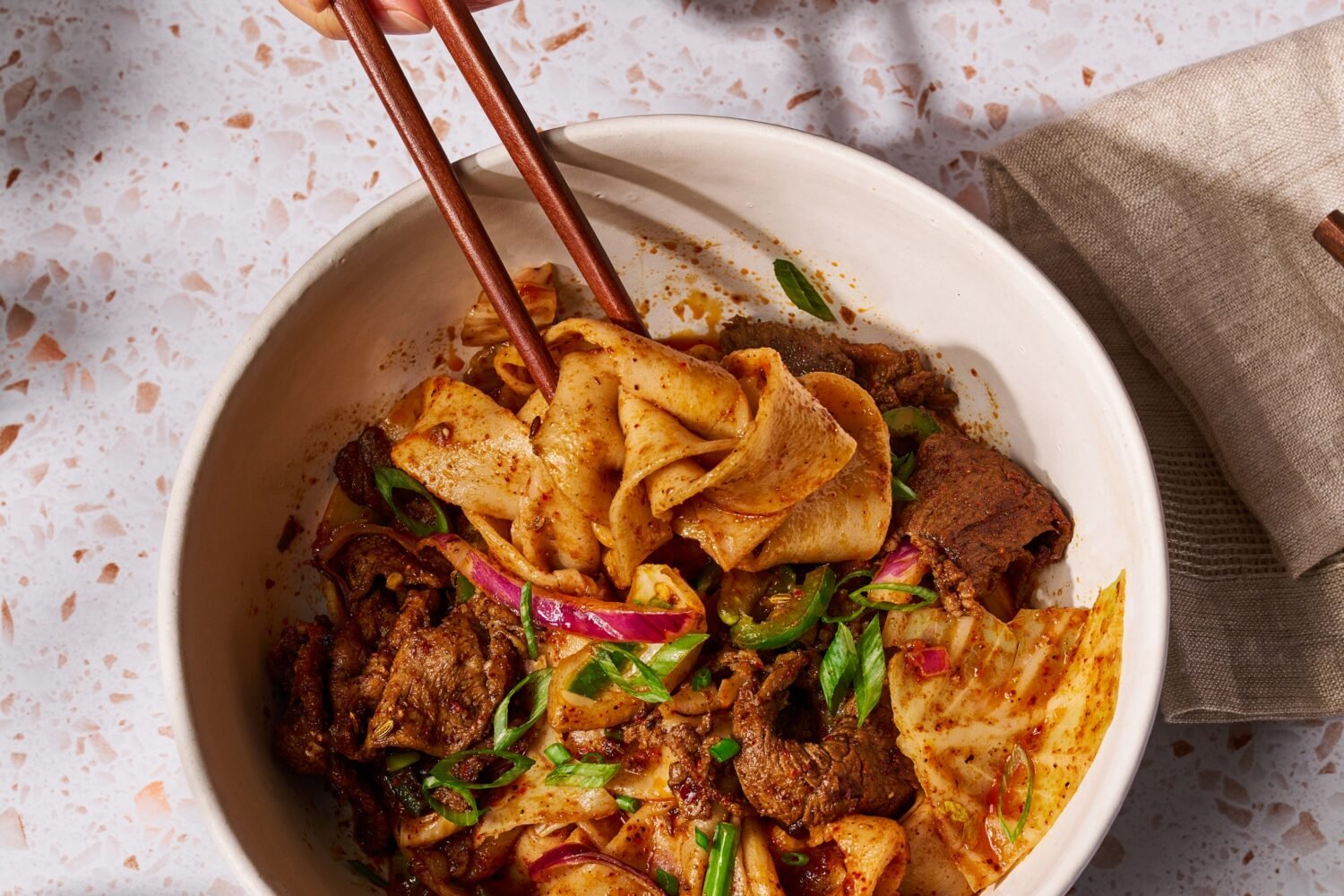Photographs by Stacy Zarin-Goldberg

The world of layoffs, foreclosures, and freefalling stocks feels a universe away when the door is opened for you at the Four Seasons Hotel in Georgetown. Inside, you walk past a lobby that, after a $40-million renovation, is so tastefully luxe that it could be the set of a Noel Coward play. Just beyond is Bourbon Steak, a sunken dining room awash in chocolate leather and bronze chenille from star New York designer David Rockwell.
The menu, created by celebrity chef Michael Mina, is filled with foodie equivalents of the latest Louis Vuitton bag. There’s a small cut of intricately marbled Japanese Wagyu for $145. A market-priced lobster pot pie rings in at about $85. And the spirits list is so lavish that a $32 glass of single-malt Scotch starts to seem restrained. The first thing you smell when you walk into the restaurant? Truffles.
All of which might lead you to ask: Are Mina and the Four Seasons insane to open this place in a recession? And does Washington really need another steakhouse—a knockoff of the ones Mina runs in Scottsdale, Miami, and . . . Detroit?
Except that nearly every table in the place is full.
About the only chefs who are brave—or flush—enough to open a high-priced restaurant right now are the ones with nationally known names and corporate backers. In the last two years, DC has landed a bistro from Eric Ripert, a wine-focused hotel restaurant from Alain Ducasse, and an Asian-fusion dining room and lounge from Wolfgang Puck.

The California-based Mina—even with 17 restaurants in his empire—doesn’t quite have the name-brand sparkle of those guys. But he’s exalted in the food world for his way with seafood, not to mention the two Michelin stars tagged to his San Francisco flagship. Like his fellow boldface names, he’s in and out of town. His executive chef is David Varley, who was brought in from Donald Trump’s hotel in Vegas.
Despite its name, Bourbon Steak is less steakhouse than you might imagine—closer to Charlie Palmer Steak than to the Prime Rib. Here the servers aren’t stuffy (“The pot pie is awesome!”), and you don’t have to order a New York strip to experience the kitchen’s finesse. Coldplay and Adele blare from the speakers. In the lounge you’ll find an impressive roster of cocktails, from such throwbacks as the Aviation and the Corpse Reviver to the Scottish Mule, a refreshing cucumber twist on the ginger-beer-based Moscow Mule.
If excess springs to mind when you see the bill, there’s even more of it on the plate.

Dinner kicks off not with a delicate amuse-bouche but with a one-two carbo punch. Upon sitting down, diners get both a rustic cast-iron pan stuffed with truffle-scented rolls that glisten with butter (they look better than they taste) and a silver tray bearing a trio of French fries—herb-sprinkled, onion-scented, and cheddar-dusted—with pickle-infused ketchup, house-made barbecue sauce, and creamy onion dip. They’re skinny-cut and fried in duck fat, and they deliver a precise message: Relax! Don’t let this menu, with its aloe-garnished hamachi and malted-milk-accented scallops intimidate you. The fries are also hard to stop munching on. Ten minutes later, you might realize you’re stuffed and you haven’t eaten anything you ordered.
The French fries aren’t the only signs of playfulness on the menu. A small roasted half of a Gianone chicken—a fancy bird that’s both organic and air-chilled—is presented as if part of a TV dinner, with tiny bowls of overbuttered carrots and fabulous mac and cheese mixed with broccoli florets and (what else?) truffles. With a skin so lacquered and crackly that it recalls Peking duck and paired with a tiny pitcher of sweet onion jus, it’s one of the best—and at $29, least expensive—entrées. Sharing space with an elegant ganache-filled chocolate cake on the dessert menu is a coconut-filled candy bar, which is better than any Almond Joy but still its close cousin.
Nowhere, though, is Mina’s devotion to highbrow/lowbrow more evident than in his signature lobster pot pie. He’s been churning it out for years, and the dish’s dramatic arrival and tableside presentation will turn heads. Its velvety cream filling, perfumed with truffles and brandy, enrobes a two-pound lobster. But the vegetables inside—currently carrots, peas, pearl onions, and parsnips—are true to the pie’s humble origins, and its cap of flaky pastry couldn’t be more grandmotherly. One thing the waiter who touted the pie’s awesomeness failed to mention: This is the most sharable dish on the menu—not only big but seriously rich.
Mina’s favorite cooking method is to poach meat in fat. Steaks get slow-poached in butter and finished on a wood-fired grill. Lamb is poached in olive oil. And pork is poached in, yes, bacon fat. The chef claims that the fat seals in moisture but doesn’t soak into the meat. Indeed, the steaks—whether the $72 American Wagyu or a $46 dry-aged New York strip—are tender and flavorful but not oozingly buttery.
Mina’s fish dishes are some of the best on the menu. An appetizer of cool, raw slices of hamachi from Japan is set off with coconut water, white soy, and thin threads of chili. It tastes best if you get every element in one bite. Ahi-tuna tartare, mixed at table, is a beautifully balanced arrangement of crimson fish, fresh mint, Asian pear, and sesame oil. Even shrimp cocktail is a standout, with big Louisiana prawns and fiery vodka-spiked cocktail sauce.
The kitchen doesn’t always get it right. Eighteen-dollar fried clams were so overbreaded they tasted like hush puppies. A cold cocktail of lobster emerged slightly underdone, though the yuzu mayonnaise by its side was terrific. And why mask the natural sweetness of bay scallops in a too-tart grapefruit ceviche?
But the flaws are few—at these prices they’d better be—and some of the most impressive flourishes come at dessert, whether it’s a lovely passion-fruit panna cotta topped with shavings of avocado, a lacy pear tart, or a boozy butterscotch pot de crème made with 18-year-old Macallan single malt.
The dining room, with roomy, ultra-private booths and spacious tables overlooking the C&O Canal, is smartly run by former CityZen general manager Mark Politzer. One night he had quite the crowd to keep an eye on. At one table, Citronelle chef/owner Michel Richard was sharing a booming laugh with Todd English, the Boston-based celebrity chef so telegenic that he looks like he’s been beamed in from the TiVo box. What was he doing in DC? Chances are, tending to the Asian-fusion restaurant he's working on here.
This review appeared in the April, 2009 issue of the Washingtonian.











